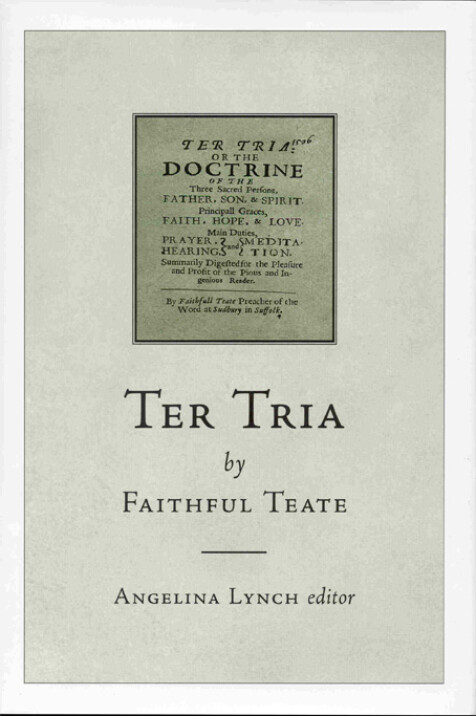Ter Tria
by Faithful Teate
Angelina Lynch, editor
Ter Tria (1658) by the Cavan-born, Puritan poet Faithful Teate (c.1626–66) is a neglected masterpiece and a remarkable addition to the canon of 17th-century devotional verse in English. Structured around the Holy Trinity and spanning nine parts, Ter Tria (meaning 3 x 3) reworks the Biblical narratives of the Fall, and the life and death of Christ in language that is striking in its playfulness and energy.
In addition, Ter Tria provides fascinating evidence of the way in which the language of religious poetry of the 17th century was deeply invested in politics: the poem is as much a comment on the turbulent political backdrop of Teate’s youth in Ireland as it is an act of pious worship. Ter Tria is sure to appeal to anyone with an interest in devotional verse or in the literature and politics of 17th-century Ireland.
Angelina Lynch is an IRCHSS fellow at University College Dublin where she is co-editing further texts in The Literature of Early Modern Ireland series under the general editorship of Andrew Carpenter.

